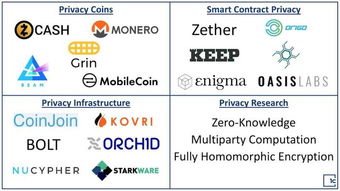Introduction to Cryptocurrency: A Brief Overview

As we delve into the digital age, the concept of cryptocurrency has emerged as a revolutionary financial innovation. Cryptocurrency, often referred to as digital or virtual currency, is a digital or virtual form of currency that uses cryptography for security. This article aims to provide an insightful overview of cryptocurrency, its workings, and its impact on the global financial landscape.
The Birth of Cryptocurrency: A Brief History

The journey of cryptocurrency began with the introduction of Bitcoin in 2009. Created by an anonymous person or group of people using the pseudonym Satoshi Nakamoto, Bitcoin was the first decentralized digital currency. It was designed to operate without a central authority, using a peer-to-peer network to record transactions. Since then, numerous other cryptocurrencies have been developed, each with its unique features and purposes.
Understanding Cryptocurrency: The Basics

Cryptocurrency operates on a technology called blockchain, which is a decentralized ledger that records all transactions across a network of computers. Each transaction is verified and added to a block, which is then linked to the previous block, forming a chain. This ensures the integrity and security of the transaction records. Cryptocurrencies are typically created through a process called mining, where computers solve complex mathematical problems to validate transactions and add new blocks to the blockchain.
The Advantages of Cryptocurrency

One of the primary advantages of cryptocurrency is its decentralized nature. Unlike traditional fiat currencies, which are controlled by central banks, cryptocurrencies operate independently of any government or financial institution. This decentralization offers several benefits, including:
Transparency: All transactions are recorded on the blockchain, making them transparent and verifiable by anyone.
Security: Cryptographic techniques ensure the security of transactions and protect against fraud and hacking.
Accessibility: Cryptocurrency can be accessed and used by anyone with an internet connection, regardless of their geographical location.
Privacy: Users can maintain their anonymity while conducting transactions, as they do not need to reveal their personal information.
The Challenges of Cryptocurrency

Despite its numerous advantages, cryptocurrency also faces several challenges, including:
Volatility: Cryptocurrency prices can be highly volatile, leading to significant gains or losses for investors.
Regulatory Uncertainty: The lack of a clear regulatory framework for cryptocurrencies has led to concerns about legal and financial risks.
Scalability: The blockchain technology behind cryptocurrencies can struggle to handle a large number of transactions, leading to network congestion and slower processing times.
Security Threats: While cryptographic techniques provide strong security, there are still risks of hacking and theft.
The Future of Cryptocurrency

The future of cryptocurrency remains uncertain, but it is clear that it is here to stay. As more businesses and individuals adopt cryptocurrency, its role in the global financial system is likely to grow. Innovations in blockchain technology, such as the development of layer 2 solutions and the integration of cryptocurrencies into traditional financial systems, could further enhance the adoption and utility of digital currencies. However, it is crucial for regulators and policymakers to address the challenges associated with cryptocurrency to ensure its long-term viability.
Conclusion

Cryptocurrency has the potential to revolutionize the way we conduct financial transactions and store value. While it is not without its challenges, the benefits of this innovative technology are undeniable. As we continue to navigate the digital age, it is essential to stay informed about the developments in the cryptocurrency space and understand the implications for our financial future.
cryptocurrency digitalcurrency blockchain bitcoin mining security volatility regulation future finance

